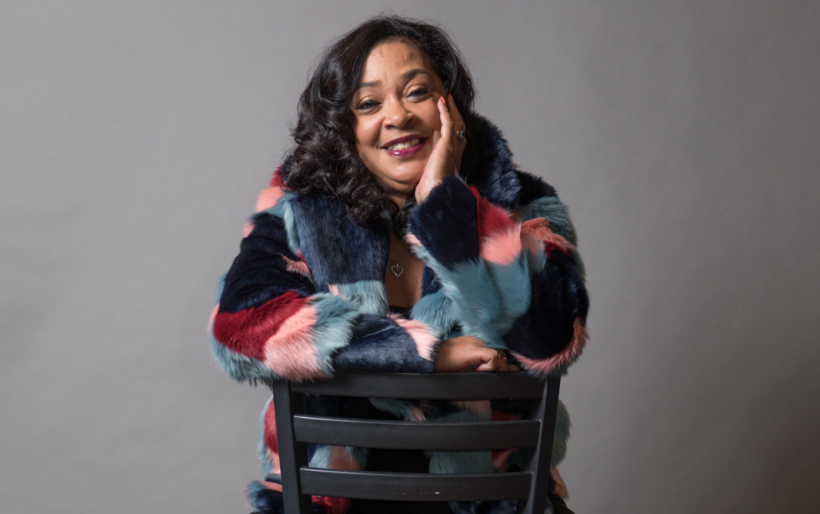
Lady B | photo by Josh Pelta-Heller for WXPN
The High Key Portrait Series: Lady B
“High Key” is a series of profiles conceived with the intent to tell the story of Philly’s diverse musical legacy by spotlighting individual artists in portrait photography, as well as with an interview focusing on the artist’s experience living, creating, and performing in this city. “High Key” will be featured in recurring installments, as the series seeks to spotlight artists both individually and within the context of his or her respective group or artistic collective.
It’s difficult to overstate the cultural impact Lady B has had almost since the very early days of her career. In 1979, as an AM radio station intern at just 19 year old, she began working to promote hip hop music: the new sounds of a genre only recently born in New York City.
Since those seminal days, B’s been dubbed “the godmother of hip hop,” a pioneer who’s come to be widely regarded as among the most influential people in hip hop radio history.
Lady B spoke with us recently, before an event she hosted at World Cafe Live. She was enchanting, recalling with a unique charm and poise some of her favorite and fondest memories of the era she helped to usher in, like gymnasium parties with childhood friends Will Smith and Jazzy Jeff, and block parties in the Bronx with seminal rap artists like Afrika Bambaataa. She also remembered collecting her first crate of rap records and lobbying radio station superiors to permit her the opportunity to share them with the Philly market — expanding for the first time the genre’s exposure outside of the New York market and driving both popularity and radio program ratings.
All this to speak nothing of the gold single she recorded, around the same time, making her the first female rap artist to do so — even though she somewhat downplays that fanfare. Read our conversation with Lady B below, explore the women of 80s Philly hip-hop further in this story by Culture Cypher Radio’s John Morrison, and see Lady B in person on March 14th when she hosts Ardmore Music Hall’s KRS-One concert.
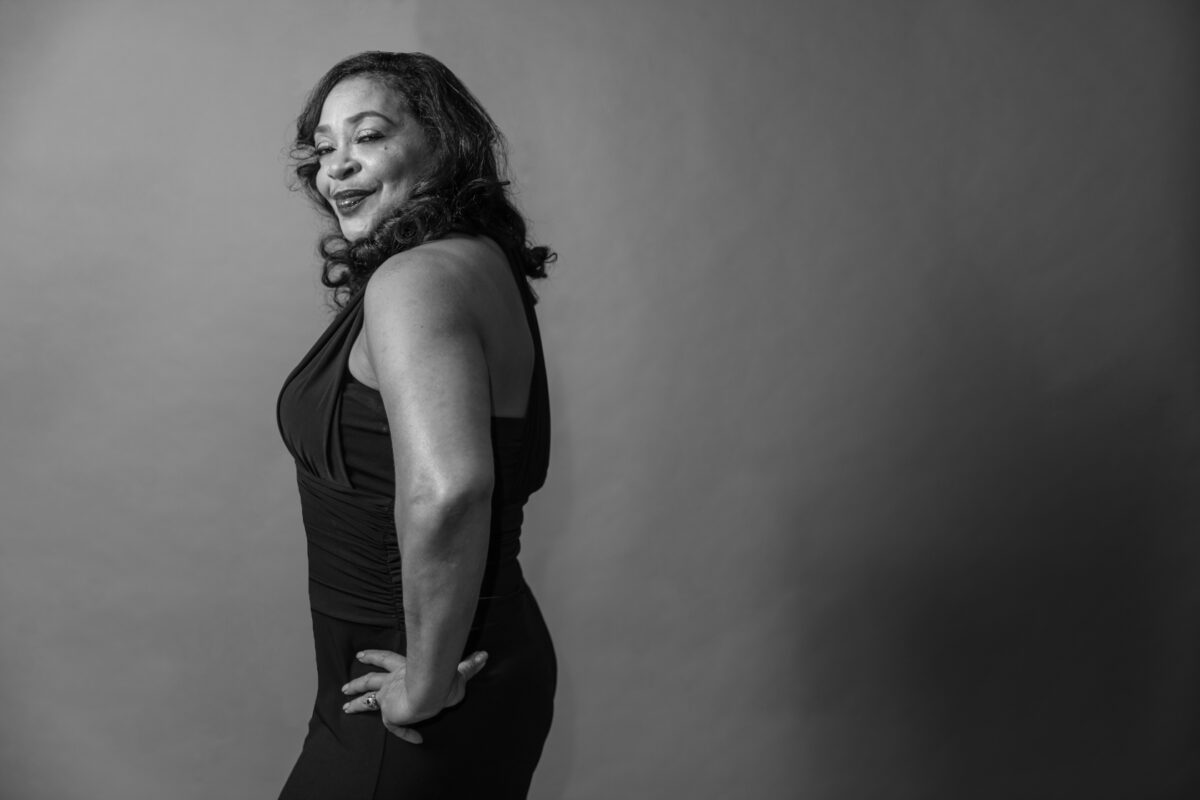
The Key: You’re from Philly, right?
Lady B: Born and raised!
TK: What part are you from?
LB [in mock rap from Fresh Prince Of Bel-Air intro]: West Philadelphia, born and raised! I came up in the Wynnefield section. When we started hip hop, it was sectioned off just like it was up in New York. You know, you had your Bronx hip hop, you had your Brooklyn hip hop, you had your Queens hip hop. But the Wynne Ballroom was a big staple, in old-school hip hop, and one of the many places we threw the first parties. But, you know, you had your down bottom hip hop, you had your Mt. Airy hip hop, North Philly hip hop . . .
TK: I’m curious, when did you even first hear hip hop?
LB: It was clubs, it was outside, it was everywhere! And you have to realize there was no hip hop records there. Can’t say I was digging in the crates, ‘cause when I brought hip hop to the masses, there was just one crate. But when [Sugar Hill Records owners] Joe and Sylvia [Robinson] decided to put out “Rapper’s Delight” — some people think that “Rapper’s Delight” was the first hip hop song on wax, when in fact it was The Fatback Band, they had a song called “King Tim III (Personality Jock)” — but if you go all the way back to the birth of hip hop, you go back to Sedgwick [Ave.] & Cedar [Park, in the Bronx], you know, there were parties. And then the DJ would play this breakbeat, and you either drop some bars or “toast” on the beat, or you say, “yo, Mikey your mom wants you at the door!,” you know what I mean, it was a way to page people!
So when Joe and Sylvia decided to come out with the Sugarhill Gang, still hanging with World and them — too young to be hanging with them, they were older than me! — but there was a club downtown called Kim Graves, and as I had plans to go to college the next year, I took a job there as a cocktail server, and the DJ there, Lawrence Levan would break down beats to like, Nile Rodgers’ “Good Times,” and Pleasure’s “Glide” These were the breakbeats, and watching World and them talk trash, you know, I started mimicking them! So I’d have my tray in one hand, mic in the other, go serve my drinks, run back in the DJ booth, spitting these rhymes that I had heard World say . . . next thing I know Perri Johnson, big DJ at [W]DAS, was approaching me about doing a hip hop song. So, hence the reason I am in the Guinness Book of World Records as being the first female on wax in hip hop.
After that, when the first pioneers of hip hop started to bust their rhymes, and the only two existing labels there, Enjoy Records and Sugarhill Records, they start putting out these songs. I took a job as a music director at [Philly AM radio station] WHAT, and I’m trying to convince these folks that this is the new thing, this is hip hop. You gotta let me play it on the radio! I went to broadcasting school — ‘cause back then you had to have a license to be on the radio, and I completed that, worked at the same time while I went to school and got that license — and convinced those folks to let me play hip hop music on the radio. And it was fire! It blew up!
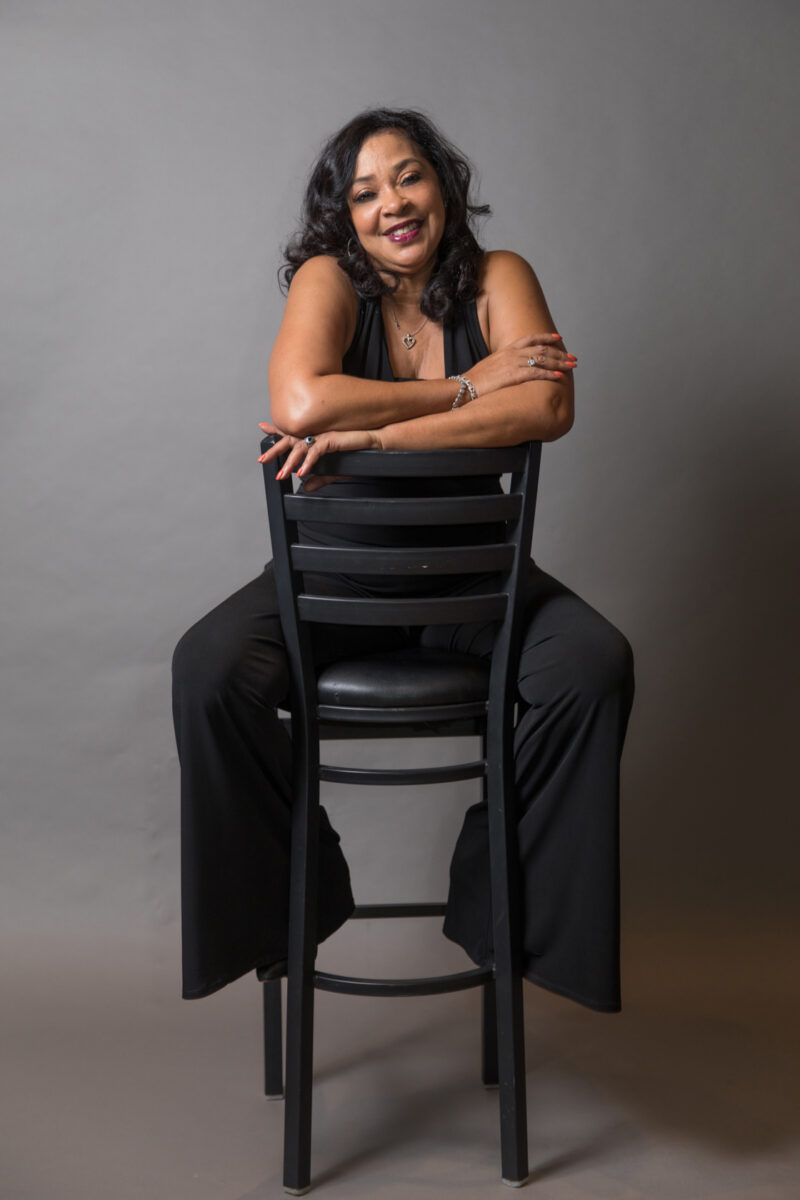
TK: Your show was the first, here, that was playing hip hop. What was the response like?
LB: It was massive. I went from those two hours they gave me in the beginning, to all weekend, and everyday. And that’s when [W]USL decided to change their country format to an urban one, and I was there for the birth of Power 99! “Street Beat” on a Sunday! And it was an awesome time. It was exciting now to just know the guys from up in New York, and the sisters, but for my hometown boys, to be able to play Will [Smith] for the first time, and Three Times Dope, and Schoolly [D], and MC Breeze, and all the cats from Philly. You know, and going up to New York with my chest out saying “we’re just as good as you guys!,” it was the whole battle thing.
I’ll never forget on the Philadelphia Spectrum stage, we had a New-York-vs.- Philadelphia hip hop battle. It was amazing.
TK: What year?
LB: I wanna say eighty . . . early eighties, I’m not gonna call a year. [laughs] I don’t have that kinda memory . . .
TK: Who won?
LB: I don’t think there was ever a winner . . .
TK: She won’t say it. We won.
LB: I’m gonna always say we won [laughs], if you want me to tell the story, if you want me to give my opinion! But I will tell you something that we noticed then, is that, turntablism — you know, you have these “five elements of hip hop,” and turntablism being my favorite, it’s always about the drummer, it’s always about the beat — but during that era is when I found out, and the world found out, that Philadelphia definitely had the best DJ’s. What Jazzy Jeff and Cash Money, and DJ Miz did with those turntables . . . I don’t know if people know how serious of a skill that it is, to put your finger on a record and apply the right kind of pressure to get you a certain sound is a talent in itself. It was always what made the MC shine, if you could have a good DJ. And they even had the “World Supremacy Contest” — birthed at Times Square in New York, at the Marriott — and I remember the first year, I was a judge, and Jazzy Jeff won. Never forget that day, he took a basketball out, literally put it on the turntable and was scratching with a basketball. Me and Will Smith went crazy, we jumped over the table. I wish we had camera phones back then, ‘cause it was the greatest day of my life. We were so proud. And then the next year, Cash Money won, and then they had the audacity to say that I was bullying the judges into voting to favor my home team. Which was friggin’ ridiculous! Because it was in New York, it was in Times Square, and the judges voted on who they thought was best! So to prove that it was not me influencing the judges’ decision, I hosted the third year. I said ok, well if you think it’s me, and because of me, and maybe I was a little intimidating to the guys, whatever — I’m a girl, how’s that even possible? But I did have a strong attitude [laughs] — but I decided to host that year. And then Miz won! So, to prove to you that we were just great at the turntable . . . and still to this day!
TK: To this day, yeah. Philly has, it’s like a cult of DJ. Like assassins.
LB: Well like I said, it is an art form in itself. And if you wanna make me angry, take a dope beat and crash it together and eff it up — I’m pissed! But New York DJ’s had a habit of just sliding the fade over there and just crashing the records — I call them trainwrecks. But Philadelphia just had a style of blending, and using those [Technics] 1200 turntables, and bringing those beats-per-minute up and down, til there was a true artistry to it. I mean the best example is just Google Jeff and Cash, and watch what they can do with their fingers and those turntables — it is ridiculous! You know, when you can take two records and make a whole new record out of it, that is to be commended.
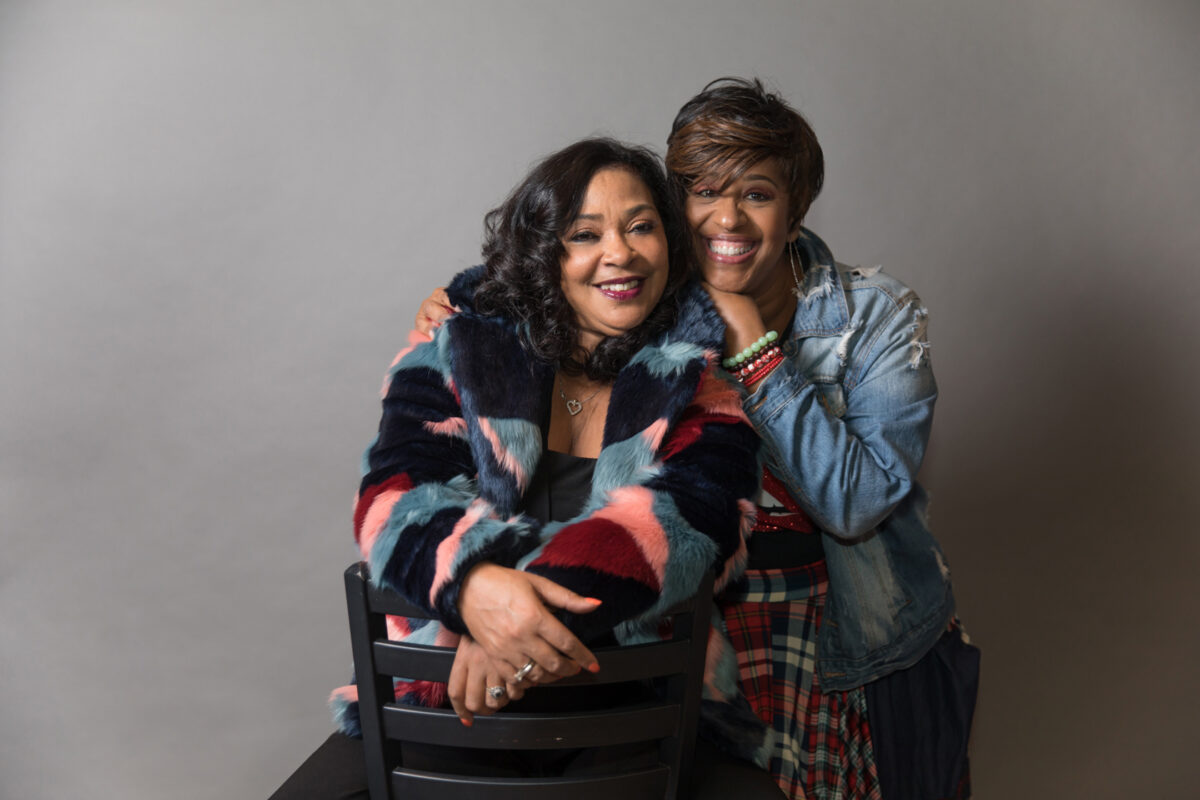
TK: So you had a hit with “To The Beat Y’all” . . .
LB: [rapping] to the beat, y’all. So, “To The Beat Y’all,” as my close personal friends will tell you, is not one of my favorite cuts. The reason being, you know, when I was a kid, and I was eighteen years old, and they approached me about doing what I was doing in that DJ booth at that club, and actually putting it on wax, I felt like it was rushed. My sister — who I just lost this year, rest in peace — and my mentor, Mimi Brown, sat up Friday night, and put all my rhymes on flashcards and they stuck them on this board, and the next day I went into the studio and I read the lyrics. And it was to a track that was already recorded, and me being the beat-lover that I am, I wasn’t crazy about the track, it was a Direct Current song. And the truth of the matter is, TEC Records’ Mark Stewart — who was in a lot of illegal things — just wanted me to do this record, it was a tax write-off. Turned out to bite him in his ass, ‘cause it went gold!
I remember doing gigs, [laughs] doing “To The Beat Y’All” with my legs shaking, at Harlem World up in New York,
TK: Nervous to perform, you mean?
LB: Yes! Nervous! Are you kidding me?! Fresh outta high school, I’m not ready to be a recording artist!
TK: And not to mention, in a genre that’s brand new, right?
LB: Totally brand new! But it gave you this power to control a group of people, the crowd, you know, the whole “wave your hands in the air,” and people actually waved them, you know? That was crazy.
TK: Did you gig in Philly too?
LB: Hell yeah!
TK: Where were the first ones in Philly?
LB: Wagner’s Ballroom. Wynne Ballroom. Hotel Philadelphia. Places like that. You didn’t have that many venues. But we fought for ours though, you know, my best memories of hip hop were bringing Will, and even the guy from Run DMC, and LL [Cool J] and all them to the venues for the first time, and taking them to high school gyms — that’s where our shows were! Wasn’t nobody trying to let us come to no World Cafe, [laughs] you know what I mean?
TK: You mentioned a couple things about how you felt about Philly vs. New York — what specifically did you feel was an advantage for you here as an artist?
LB: I think specifically, because New York was the birthplace of hip hop, we felt that we had something to prove [in Philly]. So I think we practiced harder. And we tried harder. Because we felt like in the beginning, New York kind of felt it was their thing. I mean look at it now, it’s global. But in the beginning, yeah, I think Philadelphia just kind of felt like . . . you know, it was was like New York guys are like, “oh, they from Philly, they don’t know what they’re doing or whatever, they’re just trying to copy and be like us,” kinda thing.
The thing I love about hiphop music is that it has no color. It has no age demographic. It is universal. And it is an expression of art, that one can be as unique — as a vocalist, as a musician. It’s raw, it’s real. Now, a lotta people have kinda effed it up, and didn’t appreciate or respect the rawness of it, and the realness of it. But for me, and what I experienced, and the pioneer that I am in bringing it to the masses, I couldn’t have had a better career. It was truly my honor. It was so much friggin’ fun. It was rebellious — you know, any teenager wants to go against the grain, and it was a way of going against the grain. And let’s not take away the fact that, you know, it was a time of a lotta gang war. I look around us now and the homicide rates in Philadelphia, and sometimes I get sad to think that things haven’t changed. But there was a lot of gang war going on in the mid- to late-seventies. And it was a way to stop fighting with knives and guns, and battle each other with a microphone, and what a better outcome. What a better way to boast, and represent the neighborhood that we came from. So it definitely saved lives, in my opinion.
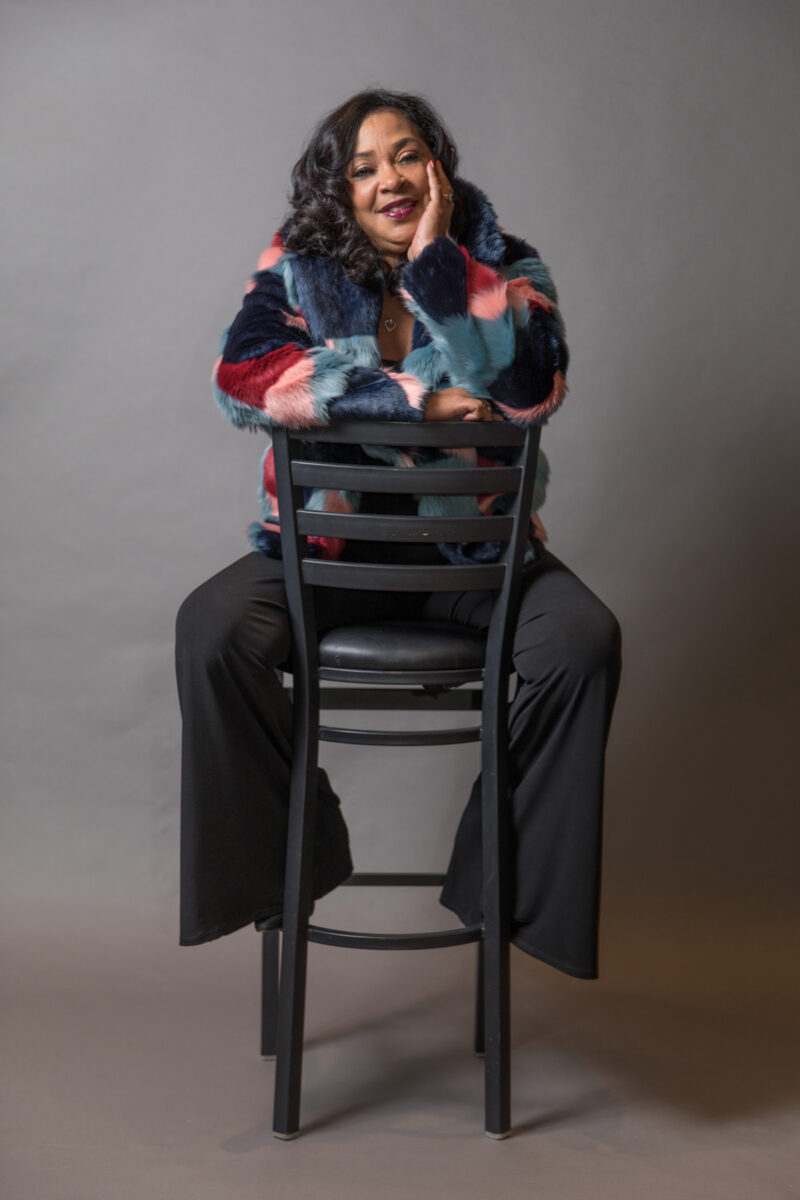
TK: In terms of influences for you, starting out — since hip hop wasn’t a thing yet — where did you get inspiration from before that?
LB: There was no inspiration to get, it wasn’t something I was aspiring to develop into. I am the youngest of four children. I grew up in a very musical household. I think we busted every speaker my mom ever bought.
TK: What about Philly artists in particular, does anyone stand out?
LB: Being the youngest of four, look I loved everything on Philly International [Records], you know I watched my sisters and I loved Stylistics and the Blue Magics and the Harold Melvins, and all of that. And I went to all the clubs with my sister with my fake ID, filing behind her. But hip hop was kinda like our generation’s own thing, that we had, and it was ours, and you couldn’t touch it.
Yeah it’s so funny when people ask me about what inspired me to get into hip hop — there was no hip hop. I am the beginning of hip hop. It’s crazy to see it make money! You kow, I watched it go from a genre of music that no one took seriously, I’ve had arguments with people like Bill Cosby, and all kinds of entertainers, “this is just some hippity hoppity stuff and it’s gonna fade away.” Which is probably what rock-and-rollers’ parents said to them.
TK: I mean it’s how Louis Armstrong felt about the hard bop guys.
LB: Exactly, you know what I mean? So, yeah, no one wants to accept the new thing. But I’m glad to be part of this new thing. And I’m glad that I fought to get it to the masses. And it’s such an honor and a pleasure to see it grow. Like I said, it went from something no one took serious to selling everything from fast food to fast cars. It’s been an amazing journey.
